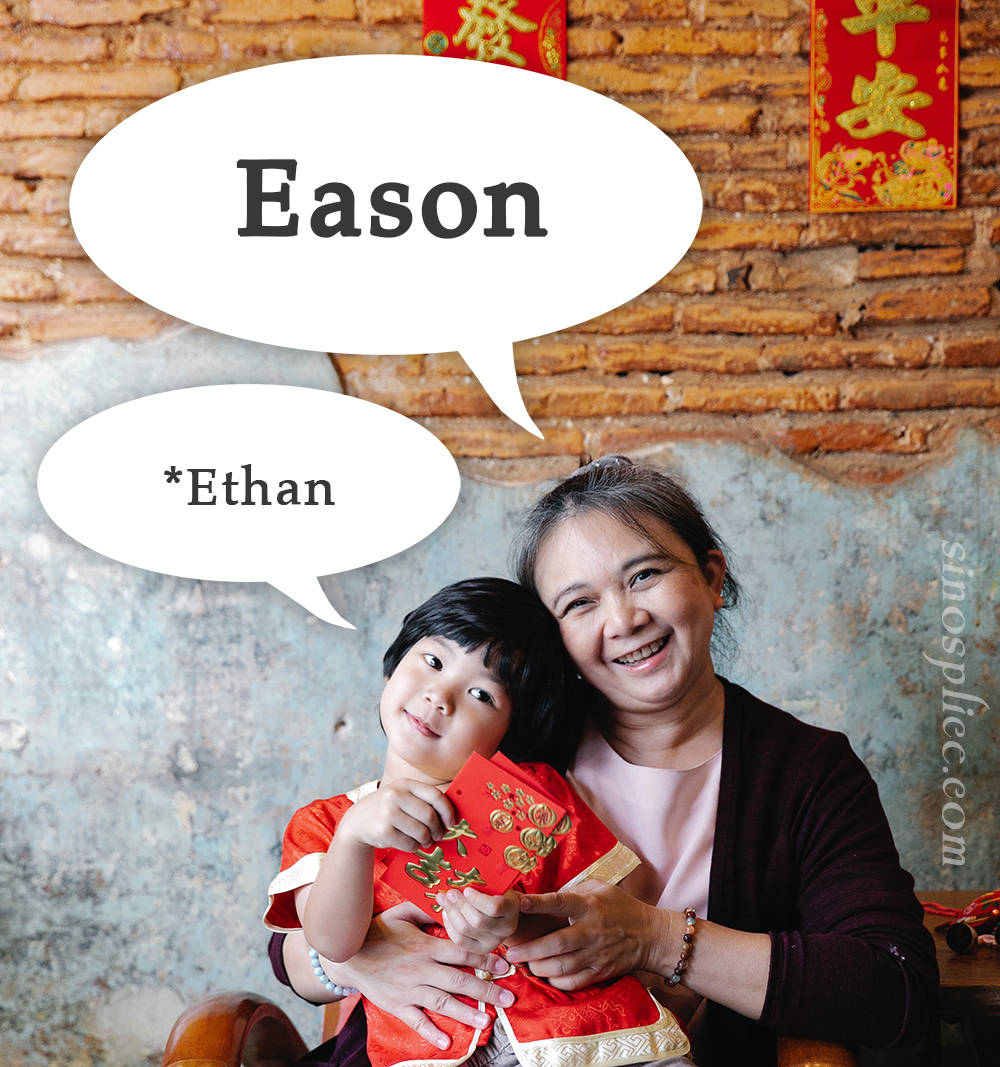Eason and Lason
Two little personal stories about creativity, adaptation, and prejudice.
Eason
When I first heard this English name I didn’t like it much, and just chalked it up to “Chinese creativity” with English. Later I realize that “Eason” was actually the transcription (back to English) of the Chinese mispronunciation of “Ethan.” The spelling is a reasonable mix of the word “easy” and the name “Jason.” This made me like it less.
But then, after more observation and reflection, I realized that “Eason” is actually in some ways better than “Ethan” within a Chinese context, because older Chinese people here without any English skills can actually say “Eason,” whereas they have little hope of ever pronouncing the [θ] sound in “Ethan.”
So while I can’t say I like this name (the Name Nazi in me still insists that it’s not a real name), I get it now, and I have a newfound appreciation for it.

Lason
This is a name that always struck me as quite unusual. I assumed it was just a creative alternation of the name “Jason.” (Or maybe a kid wrote a backwards J that looked like an L, and thus “Lason” was born?)
After my realization about Eason, though, I suspect that this one is a double-whammy of mispronunciations converted back into English. This could be your standard “s” for “th” pronunciation substitution, combined with a (less intuitive) “L” for “N” substitution that you get in some Chinese regional accents. Hence, “Lason” from “Nathan.”
This English name has the additional amusing feature of sounding (to the Chinese) like the Chinese title for Thor, God of Thunder: 雷神 (Léi Shén).
I must admit, I struggle a bit more to accept this one. Not sure if it’s the perceived “double whammy of English mispronunciations” that does it, or if it’s the old Name Nazi prejudices, or if it’s just something aesthetic about it.
Conclusion
But anyway, Lason is gonna be Lason. My opinion doesn’t matter a whole lot in the grand scheme of things. An educator has influence, sure, but if Chinese society raises a whole generation of Lasons, they can change the landscape of English names globally. That’s kind of cool.

Don’t know if it would increase the chances that you would like the name, but there’s also the singer Eason Chan (陳奕迅 – Chényìxùn… So, yìxùn => Eason… It’s a fairly common SURname, at least in America and England (where Eason Chan spent a fair amount of time in his childhood.)
Not sure if that helps it achieve *real name* status, but, hey – just throwing that into the mix. 🙂
Good point. Nothing is absolute; it’s all shades of gray. So being familiar with Eason Chan would definitely affect one’s opinion of the name.
OMG, John, only a bilingual name-Nazi linguist immersed in Chinese culture would have such subtle yet incredible insight to the evolution of a couple of English names! Well done! Tài bàng ah!
I’ve encountered a few Easons before but never heard of Lason. To me Eason sounds a lot more like a “real” name (not that it matters) than Lason does.
Years ago I once had a student named “Run.” To this day I still don’t know if he was “supposed” to be Ron and a chain of imperfect pronunciation leading to misspelling resulted in Run, or if that was always the intended name.